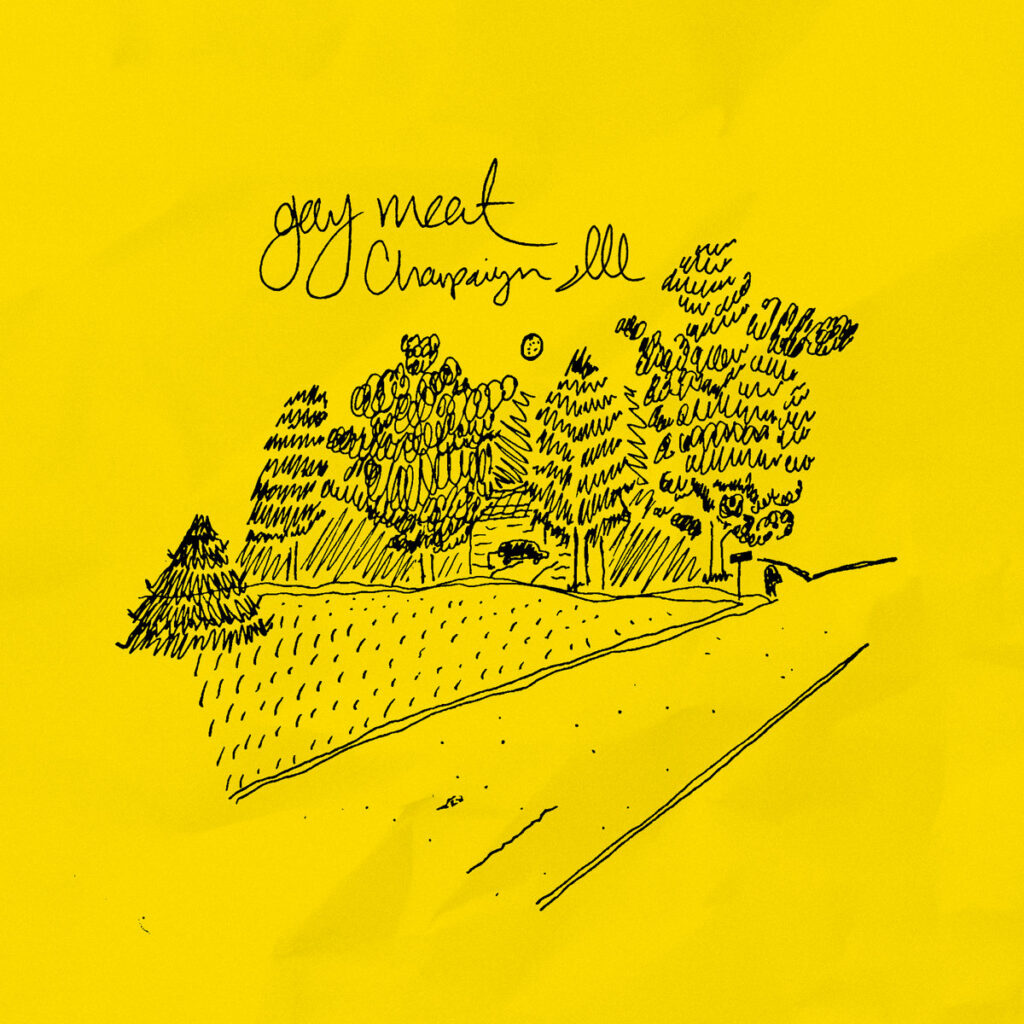Gay Meat brings us this heartfelt and downtrodden single with a slight pun for a name: While drinking champagne to excess can make one ill with a hangover, “Champaign” is also the name of the fourth-most populated city outside of Chicago in the state of Illinois. This little pun aside, however, the illness Gay Meat describes would be one known as a killer: A broken heart. The raw-feeling mixing on this track gives additional punch to the vocalist’s emotional, trembling baritone; the lasting impression of a song recorded on despairing impulse underlines lyrics that hit hard and close to home. The vague nature of Gay Meat’s lyrics don’t necessarily paint a narrative more than they illustrate the state of being after your heart’s made a fool of you:
“I bought in/Gave all my chips to you/I thought I’d win/I think a lot that’s true” “You let it under your skin again/Is this nine, or ten times now?/You know life’s not about/Getting on the same page/It’s more like 10,000 ways to disengage”
The initial half of the song is devoted to a slow, mournful strumming that occasionally accents and shocks the ears like a fist through a mirror. The singer has been blindsided by red flags only seen without rose-tinted glasses until it’s far too late to salvage anything worthwhile from his heartbreaks; no matter how our narrator has been taken advantage of no longer even seems worthwhile to mention, what with repeated incidents implied to blend together by now. In the first two renditions of the chorus, we’re led by four specific lines:
“It’s always what you don’t see/Coming/Turns you around/Unbecoming”
Upon reprisal carrying into the song’s dreamlike, ethereal outro, however, this vague allusion to relationship-ending tragedy is made slightly clearer:
“‘Cuz it’s always what/You can’t predict that/You can’t change/It makes you sick”
This iteration offers only a crumb of elaboration, yet this little piece proves crucial; this was not an act of romantic self-sabotage or blatant codependency on the part of the singer, but some more unpleasantly surprising element that allows loneliness to grip and drag him back into its maw. It could be an unfaithful partner, or even losing one’s love to an untimely demise. The end of this portion ends with a verse first implied to be self-soothing:
“Don’t let it get you down”
This verse is answered, however, by a chorus of voices carried by the consistent strumming of an acoustic guitar:
“You say you won’t, but you will”
This choir drops each voice, one by one, in every repetition of the phrase until only a quiet, compressed voice tugs at the ears like a little voice of self-doubt in one’s head. The guitar carries on, sticking to a simple “down-up-down-up” strum pattern as the song slowly fades to silence. For this song, the simplicity in rhythm works to the advantage of Gay Meat’s vocalist, allowing for easier points of reference to stay on beat during performances as well as more flexibility to act as well as sing. The snarl of the singer when letting loose the verse “More like 10,000 ways to disengage” is just as audible as a smile would be; every level of this track bleeds with pathos and its resulting impulse. When envisioning the scene “Champaign Ill” creates in my mind, I cannot picture anything but a concrete front porch at the break of dawn, sitting across from a grieving and heartbroken friend with a cigarette in his teeth, a guitar in his hands, and a half-emptied beer on the little table between us. What keeps the listener in that chair across from Gay Meat is the sobering realization that, upon crossing a certain threshold of lived experience, his agony is one familiar to all but the luckiest among us.
This is the talent of Gay Meat made bare: They strike at the listener’s heart, aiming for the most tender of its weak points to dig into one’s empathy (or, if not empathy, than deepest sympathies). If you have not felt the pain displayed in “Champaign Ill”, it will at least spark your deepest concerns and perhaps remind you of the worst fears you have regarding romantic intimacy. No matter how this song takes your heart in its grasp, it is sure to leave its mark in some way or another; when tragedy strikes, it may even become a siren song for you to sink into as you lick at your heart’s wounds. Currently, Gay Meat’s catalogue consists of four singles. While it’s unclear whether or not the group intends to release a full album, I nonetheless look forward to more of their work whenever and however it may come. The promise this group shows in their melancholic lament intrigues and excites me. I look forward to seeing how far they can go from here.
Written by Alexei Lee



